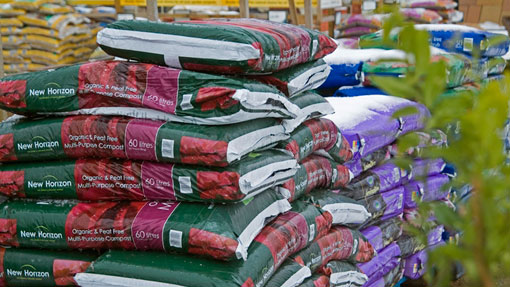
The Royal Horticultural Society (RHS) has welcomed Defra’s consultation on the banning of the use of peat in gardening by 2020.
The charity has been working for 10 years on potential peat-free alternatives and has been encouraging gardeners to reduce the amount of peat they use.
The RHS itself has exceeded Defra’s target of a 90 per cent reduction in peat used in growing media and soil conditioners by 2010.
Peat accounts for less than 0.7 per cent of all growing media and soil conditioners that the charity uses in its gardens. At its flower shows it bans the use of peat for staging.
“For decades, peat-based potting composts have been used to raise and grow-on plants,” says Roger Williams, RHS Head of Science. “But the RHS has been concerned about the potential damage to the environment and so has been conducting scientific research into peat-free alternatives.”
Peat-free potting composts contain mixtures of organic materials such as composted bark or coconut fibre (coir) mixed with inorganic materials such as sharp sand and grit. This mix of course and fine particles is needed to create a balanced compost containing enough water and air which is essential for root growth.
“If a bag doesn’t say ‘peat-free’ then it most likely isn’t,” says Roger. “Good quality peat-free growing media are available but require slightly different management than peat, especially greater care with watering. It is important to read and follow any specific instructions on the bag as plants growing in peat-free composts may need slightly different treatment. Further information is available on our web-site www.rhs.org.uk/peat. ”
The RHS will continue to work with Defra, growing media manufacturers and others to ensure that gardeners have the products and advice they need to enjoy successful, peat-free gardening.
In a very small number of situations the RHS recognises that peat may have to be used, such as the cultivation of some carnivorous plants. The RHS will raise its concerns about this specialist minority use with Defra during the consultation.






